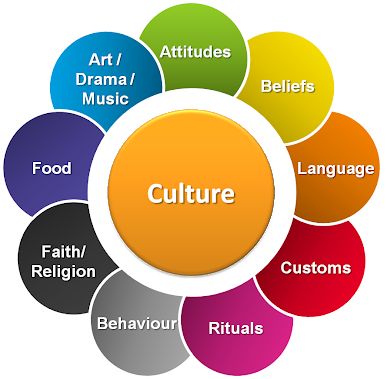Basics On Culture
Jul 03, 2019 • 109 views
Culture is a way of life. The food you eat, the clothes you wear, the language you speak and the God you worship, all are different aspects of culture. In simple terms, we may say that culture is the embodiment of the way in which one thinks and does his work in his daily life. It also includes those things which we have inherited as members of the society. Everything that we see around ourselves and that we do are different aspects of culture. Art, music, literature, dance, architecture, sculpture, philosophy, religion and science can be seen as parts of culture.
Culture thus refers to a human-made environment which includes all the material and non material agreements among social scientists. Culture consists of explicit and implicit patterns of behavior acquired by human beings. These may be transmitted through different symbols constituting the distinctive achievements of human groups, including their embodiment as artifacts. The essential core of culture thus lies in those finer ideas which are transmitted within a group, both historically derived as well as those selected with their attached value.

Culture has been classified into two different components that are "Material" and "Non-Material". Material culture includes objects that are related to the material aspect of our life such as clothes, household goods which can be seen and displayed. Non-Material culture refers to ideas, thoughts and beliefs which lie within the mind and heart of a person and society.
Culture is a trait that differs from place to place and country to country. It's development is based on the historical process operating in a local, regional and national context. For example, we differ in our ways of greeting others (in some countries the culture is of shaking hands, in some the culture is of hugging each other etc.), our clothing (we differentiate clothes and wearing styles on the basis of Indian and western culture), food habits (every restaurant has a variety of cuisines), social and religious customs and practices. In other words, the people of any country are characterized by their distinctive cultural traditions.
General characteristics of culture
Culture is learned and acquired
Culture is acquired in the sense that there are certain behaviors which are acquired through hereditary. Individuals inherit certain qualities from their parents but socio-cultural patterns aren't inherited. These are learnt from family members, from the group and society that we live in.
Culture is shared by a group of people
A thought or action may be called culture if it is shared and believed or practiced by a large group of people.
Culture changes
These are knowledge, thoughts ortraditions that are lost as new cultural traits are added. There are possibilities of cultural changes within a particular culture as time passes.
